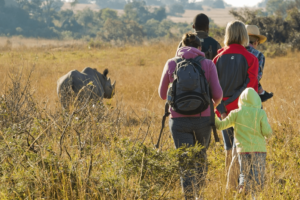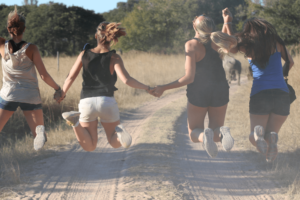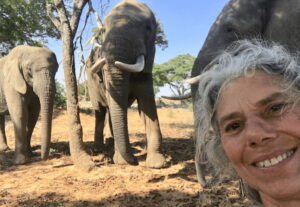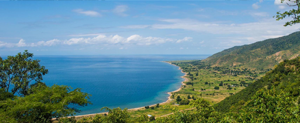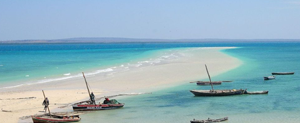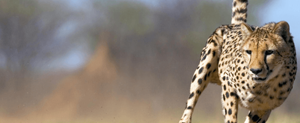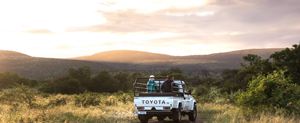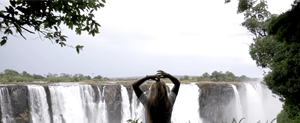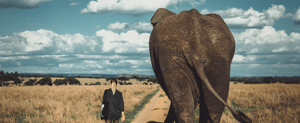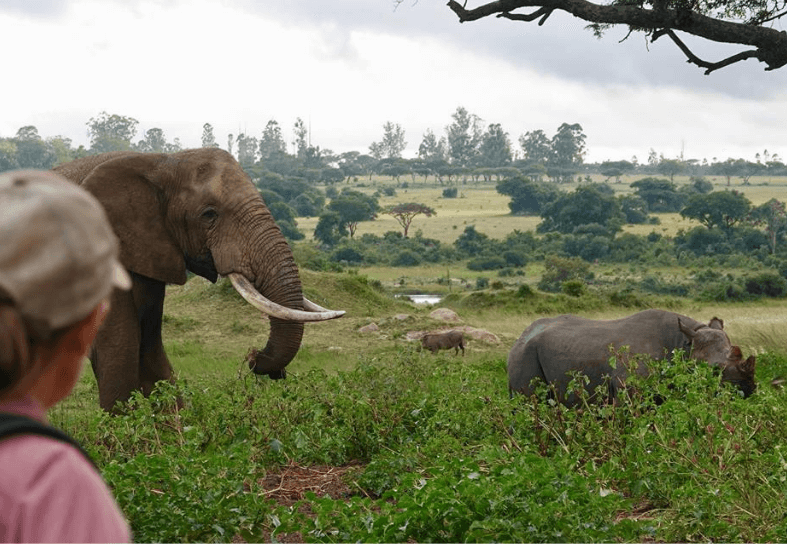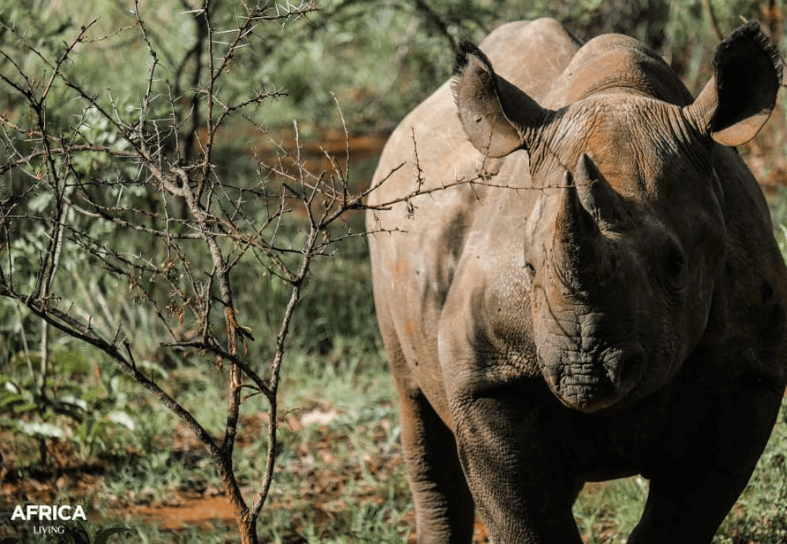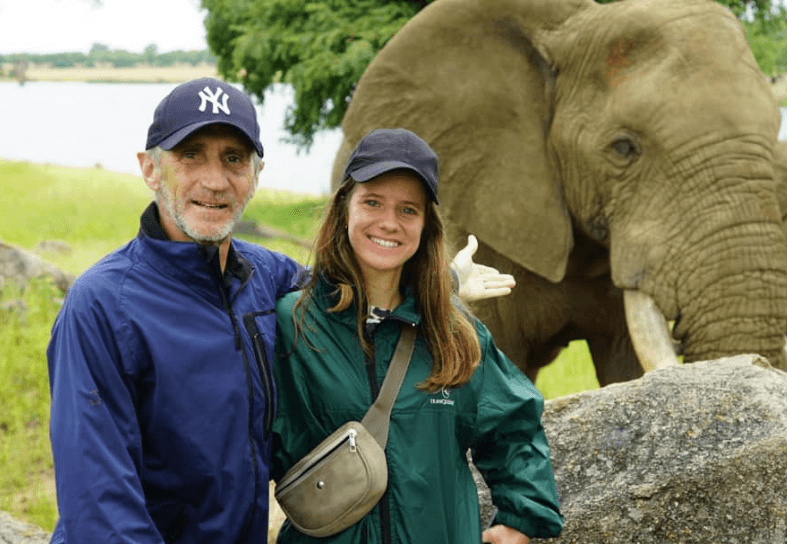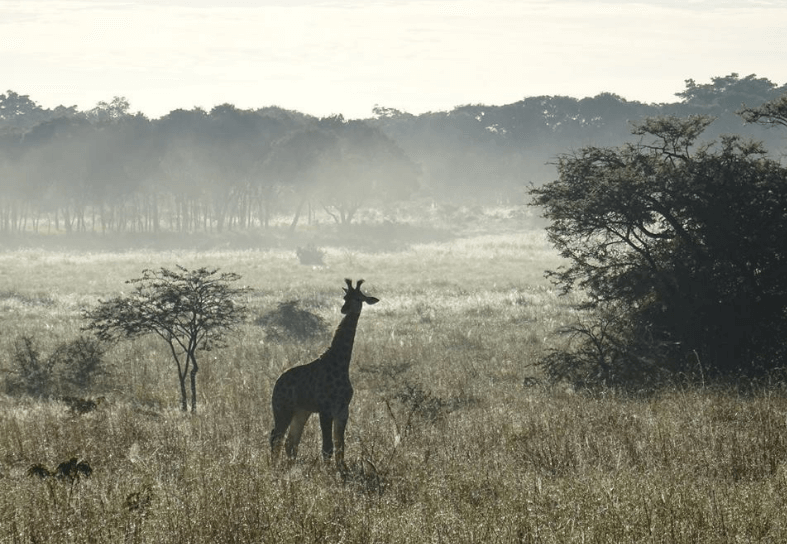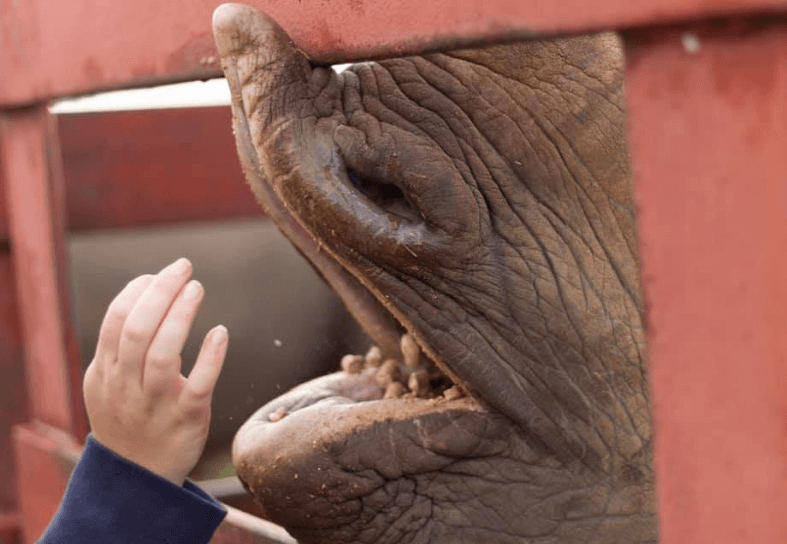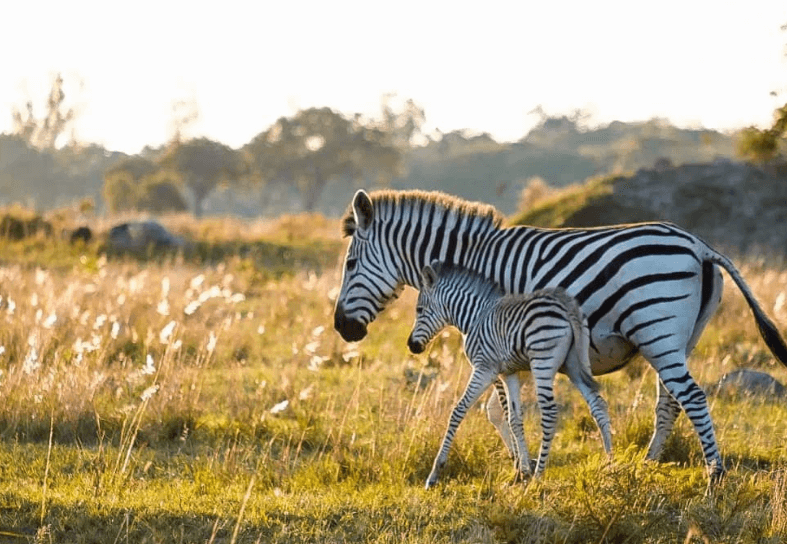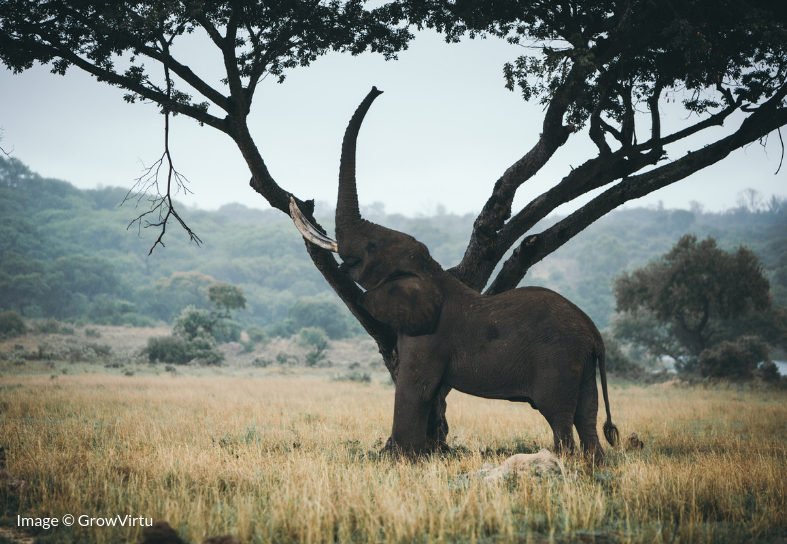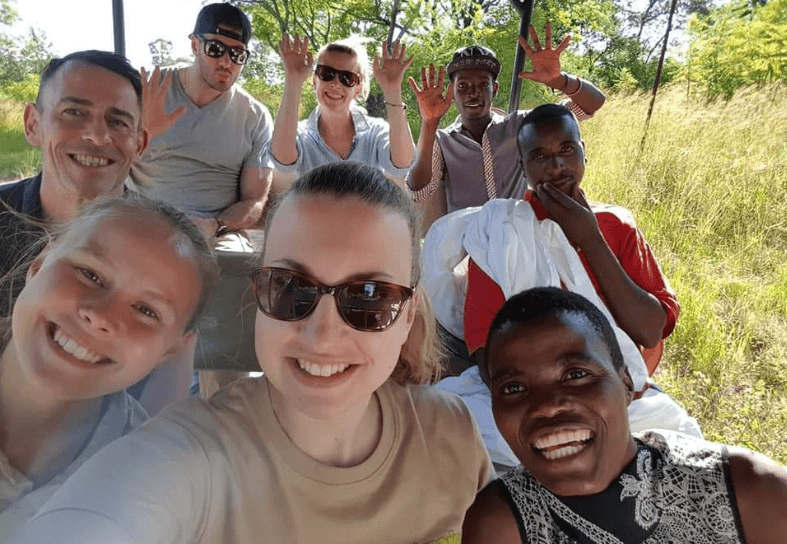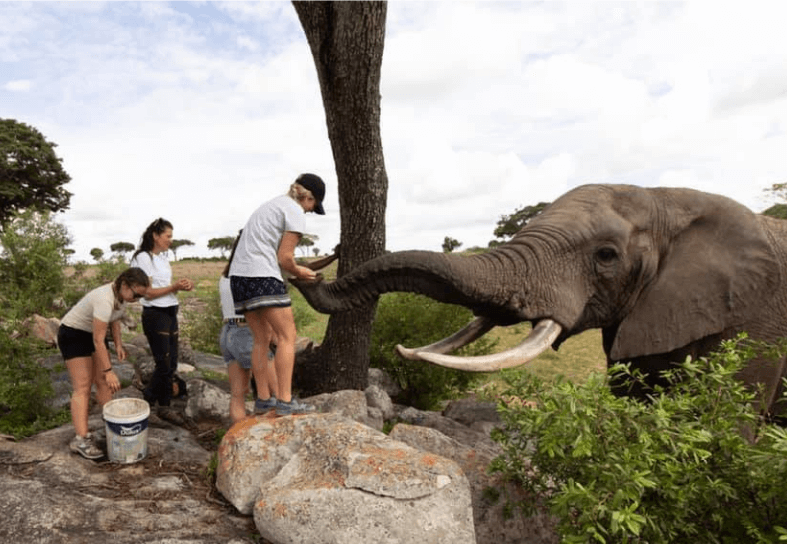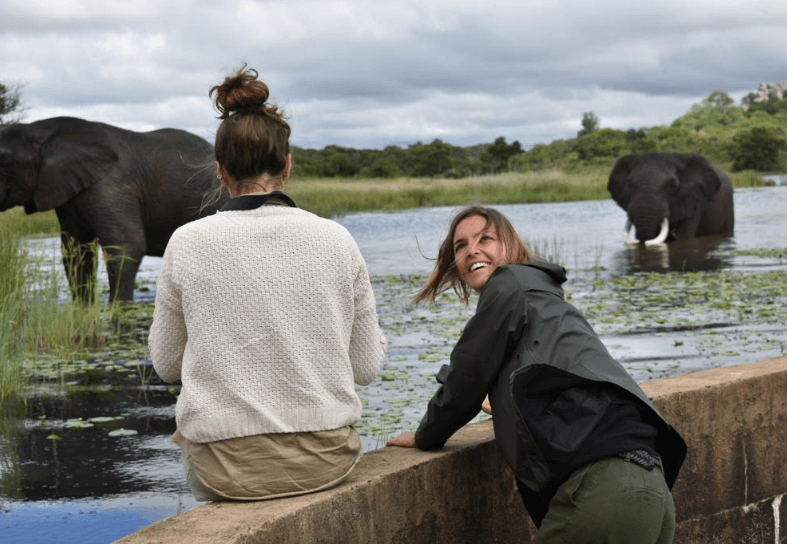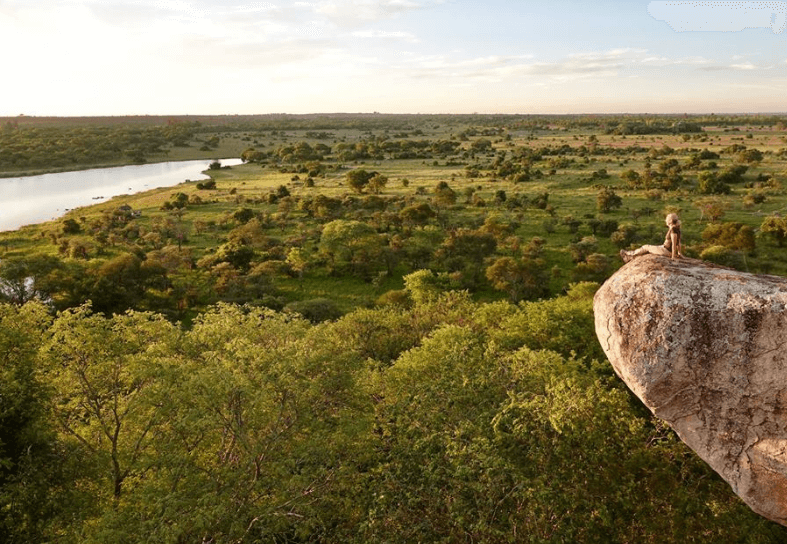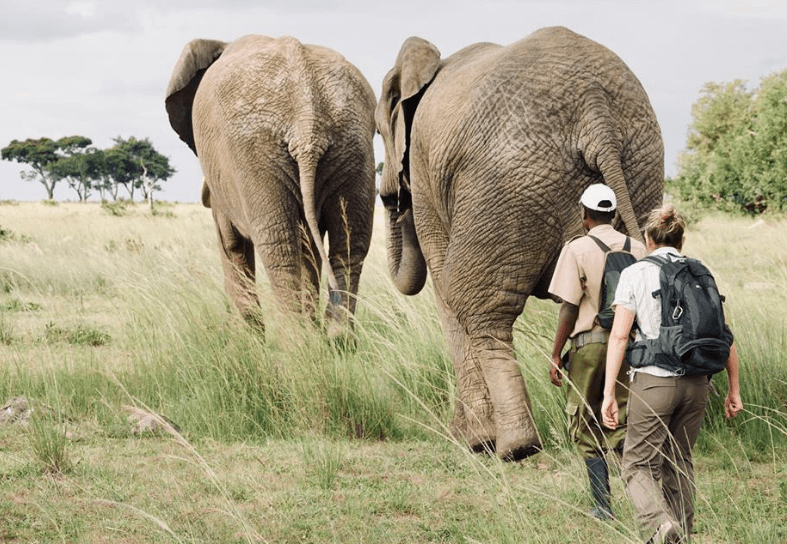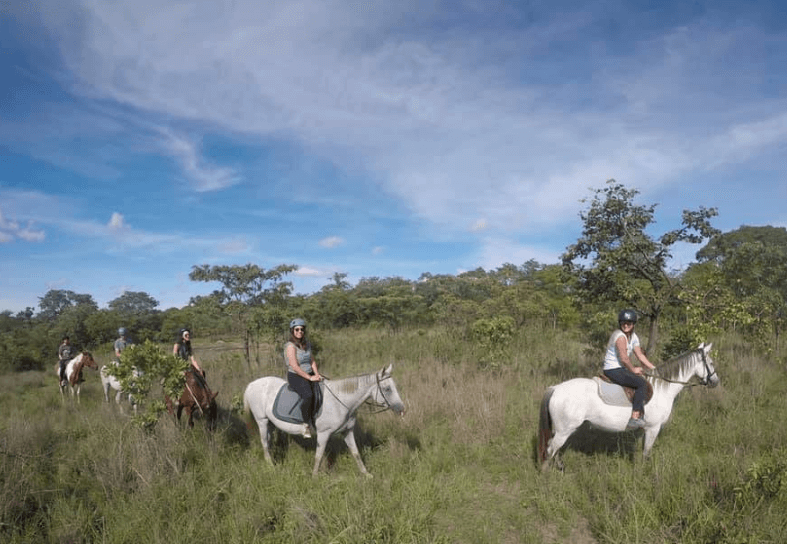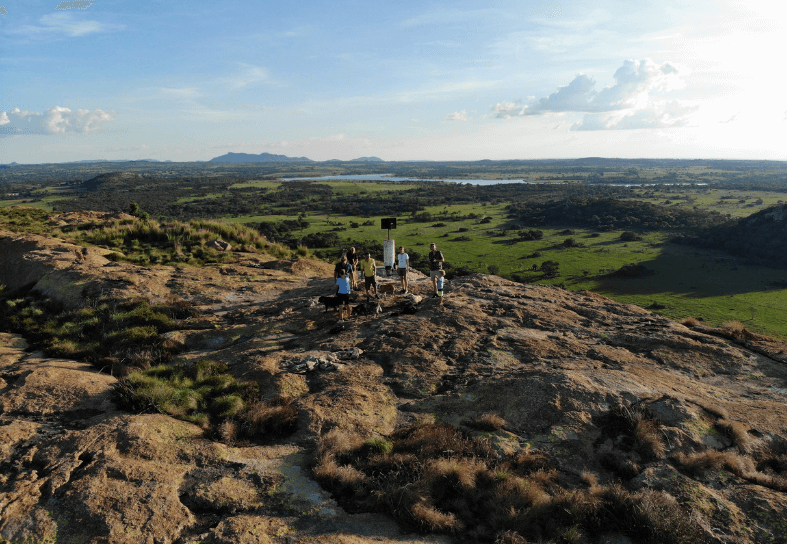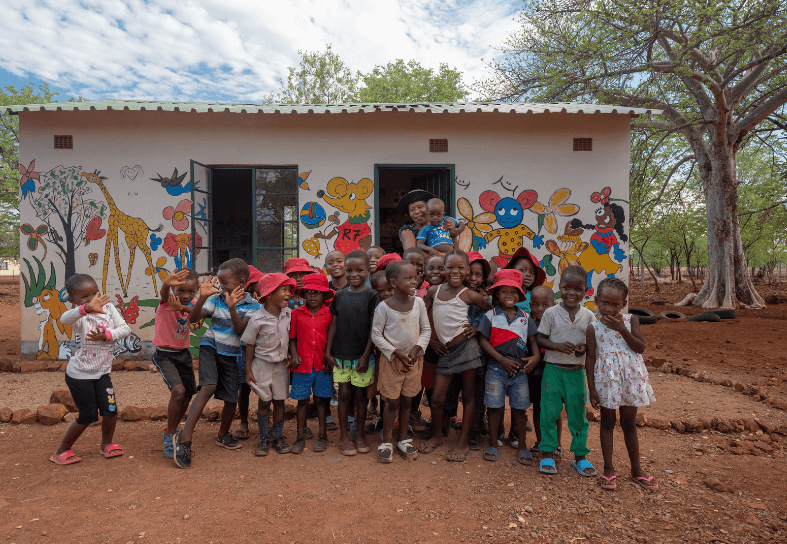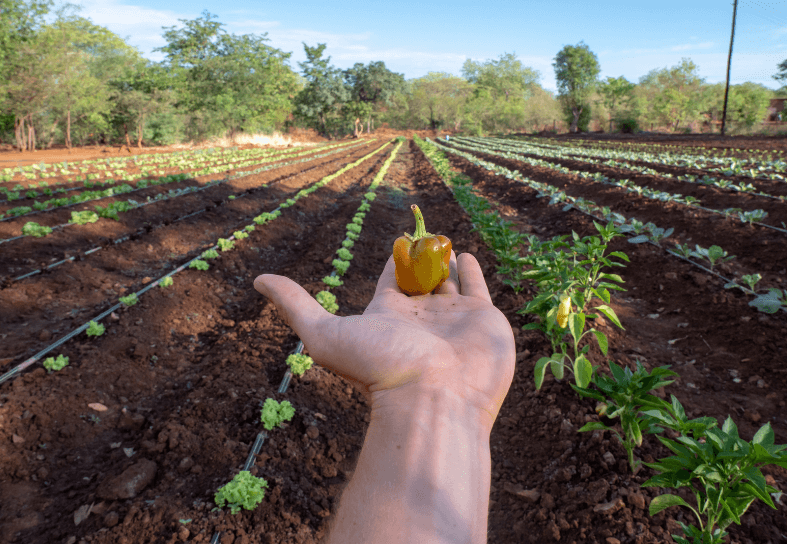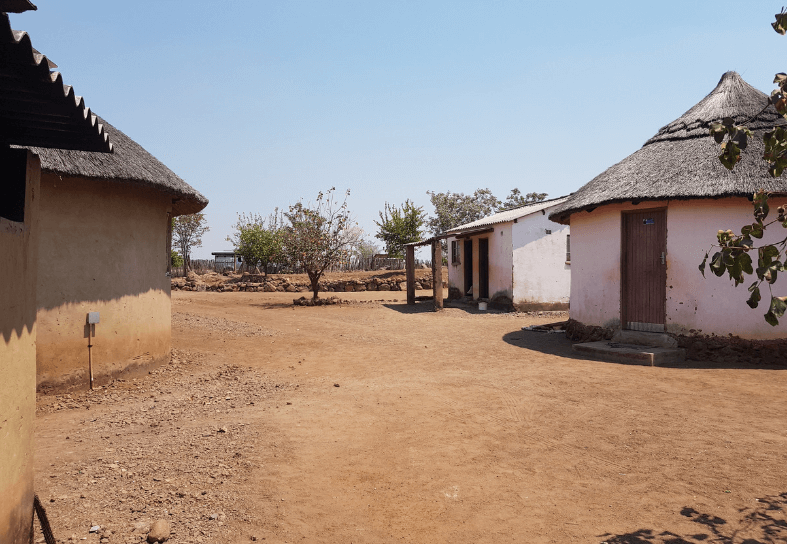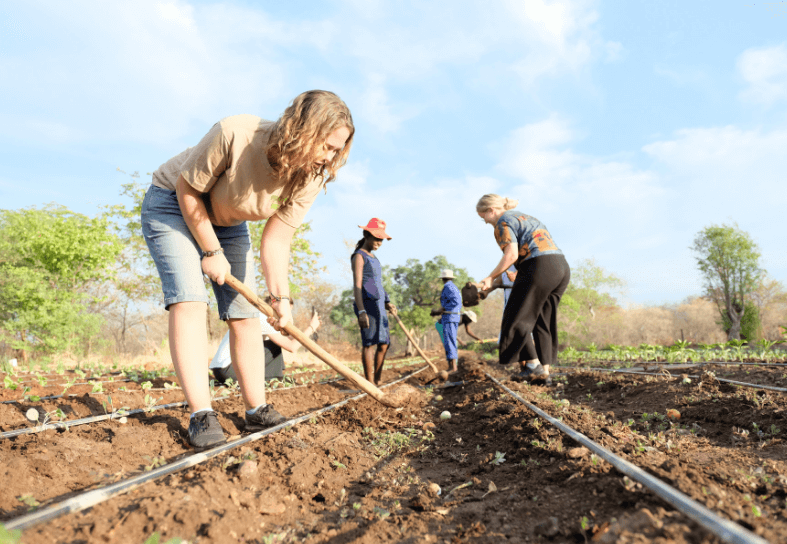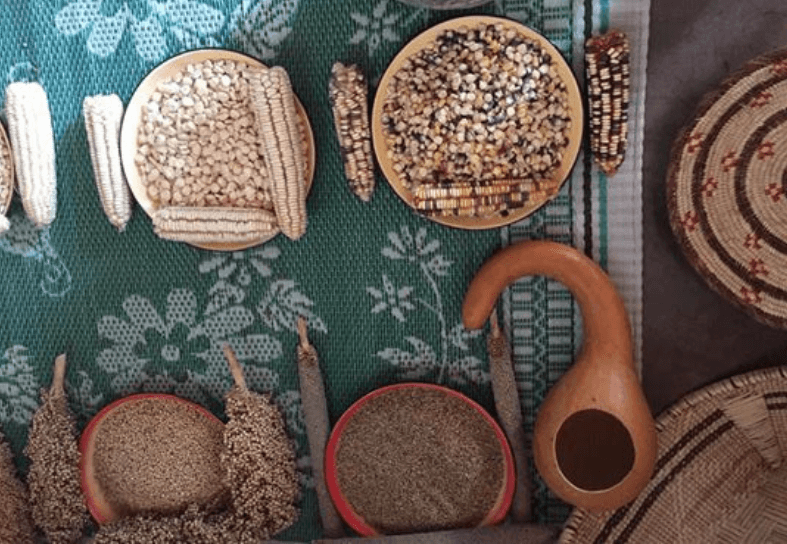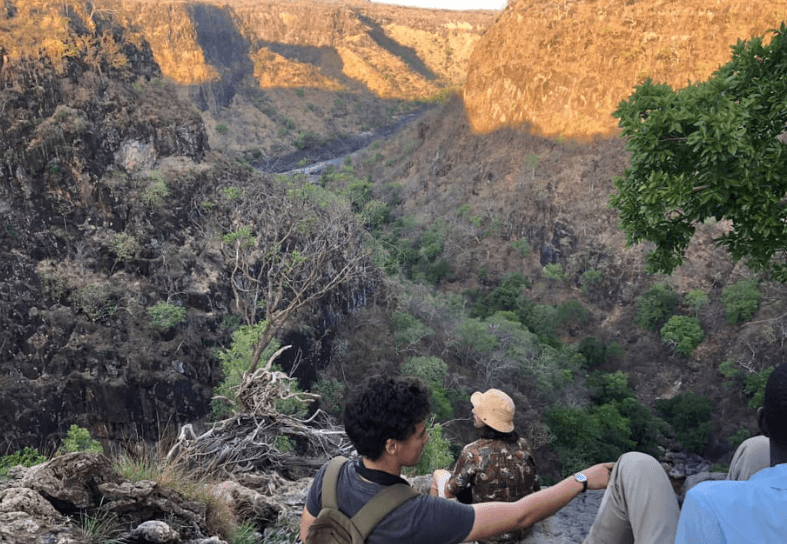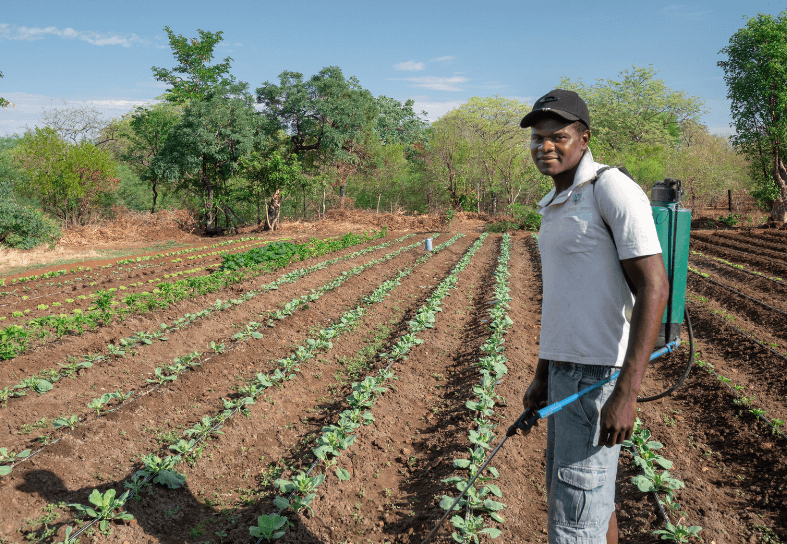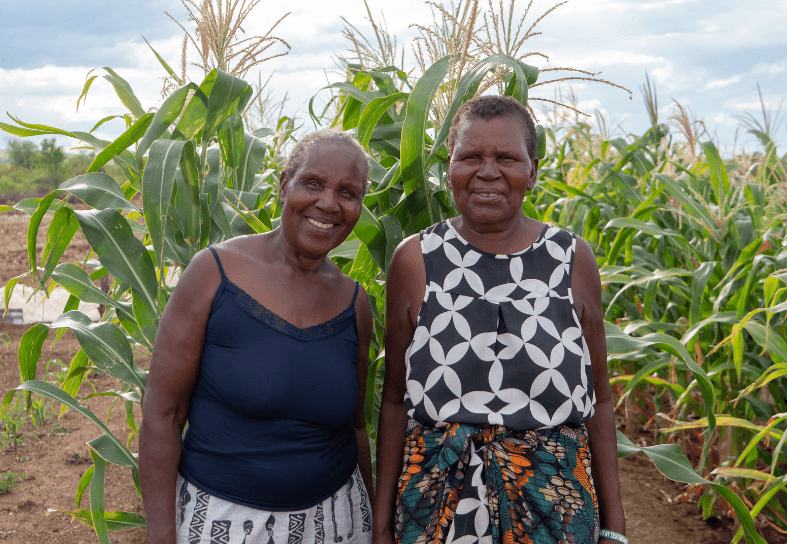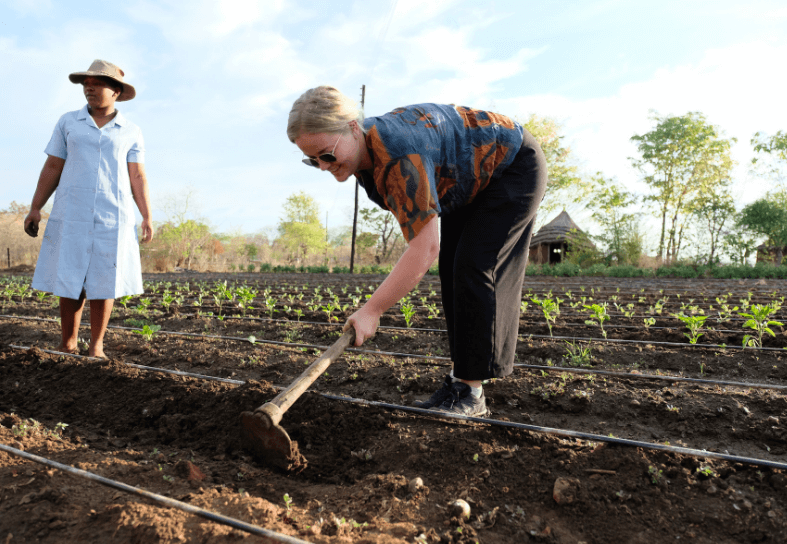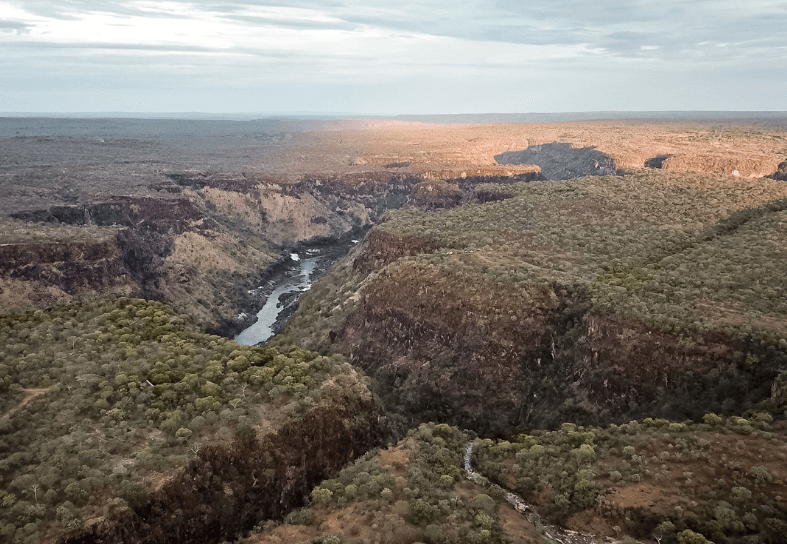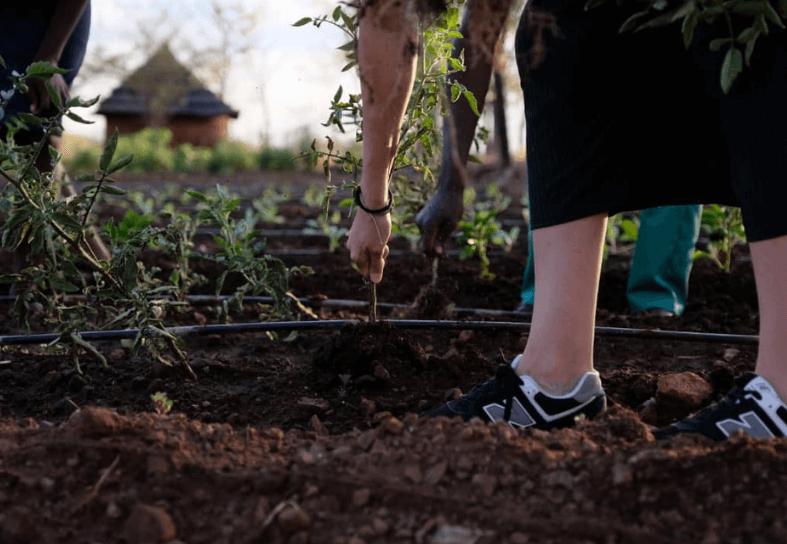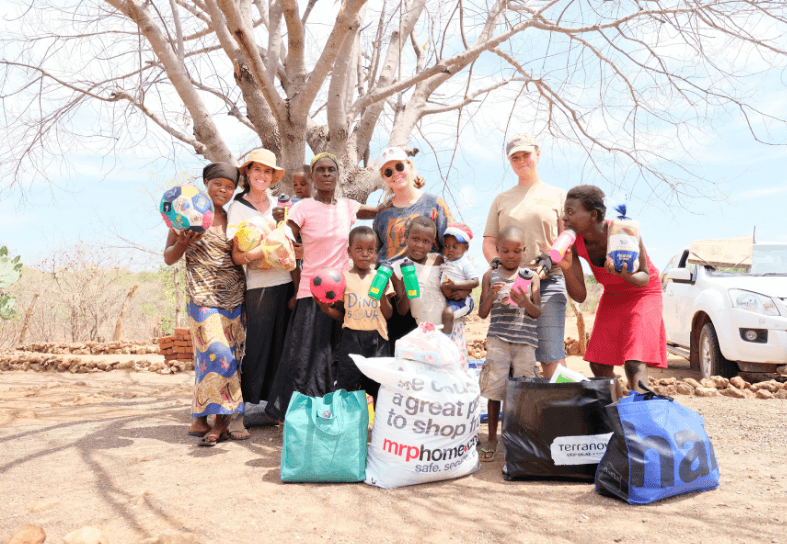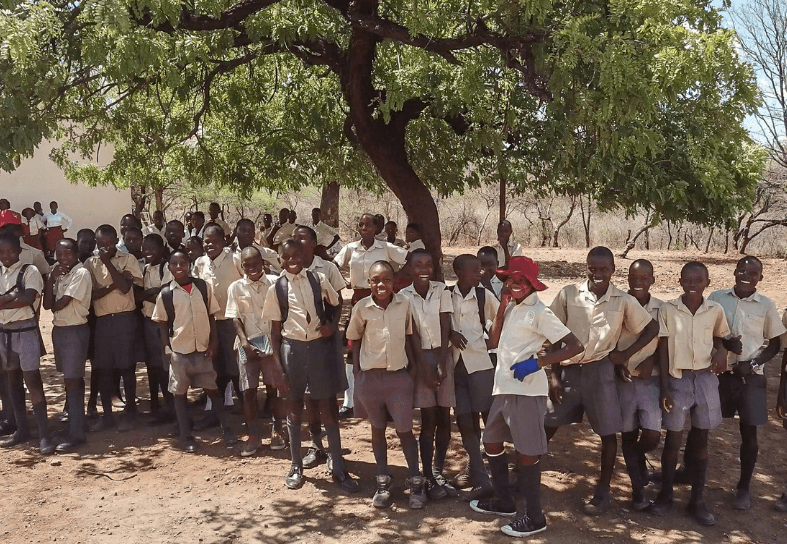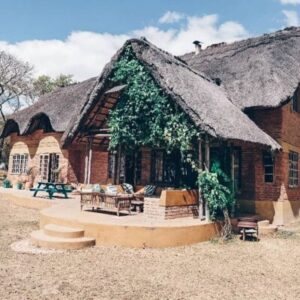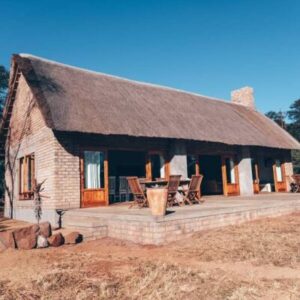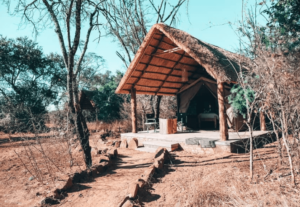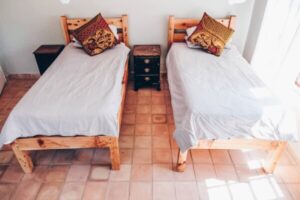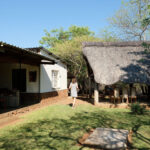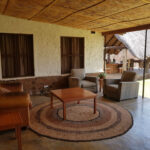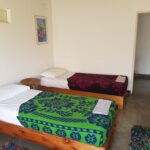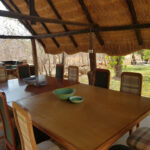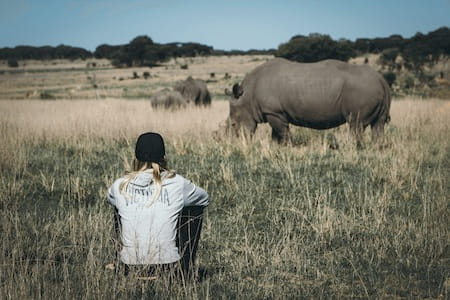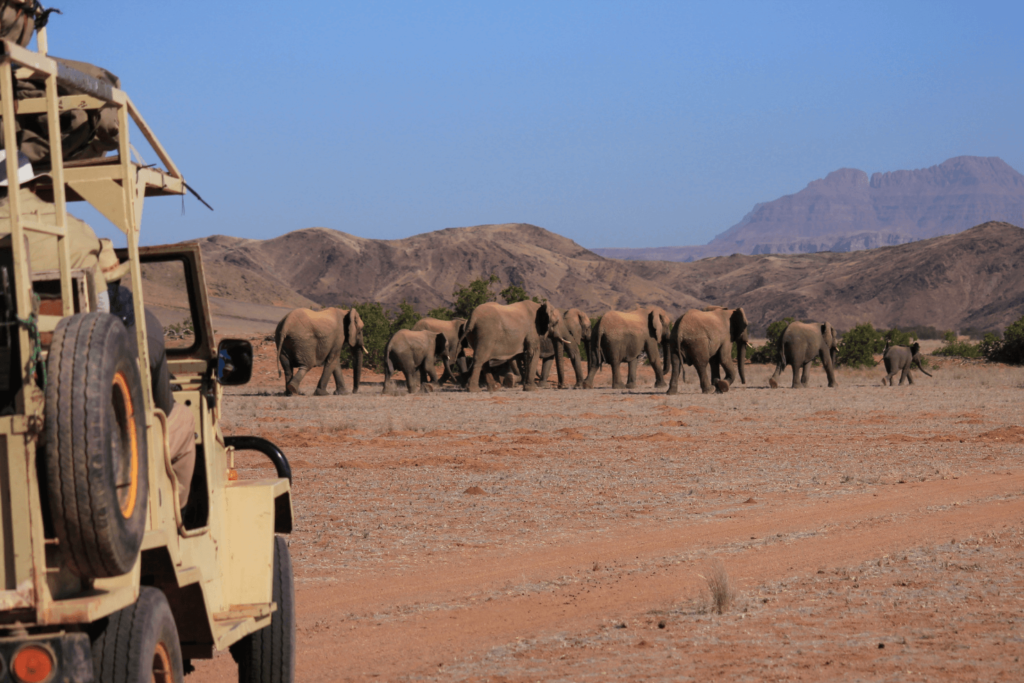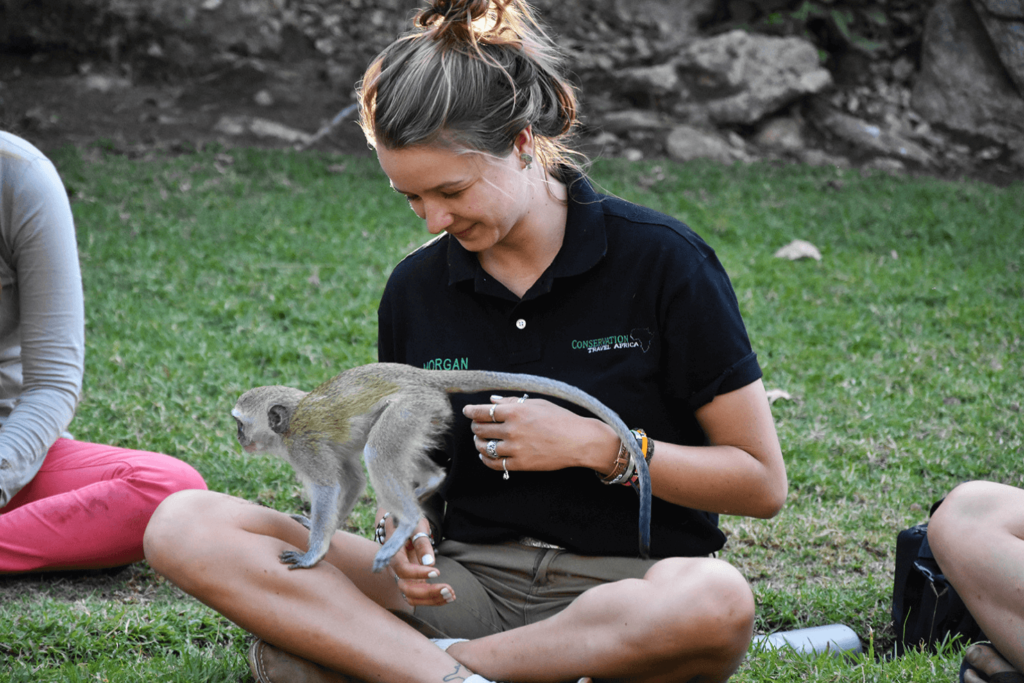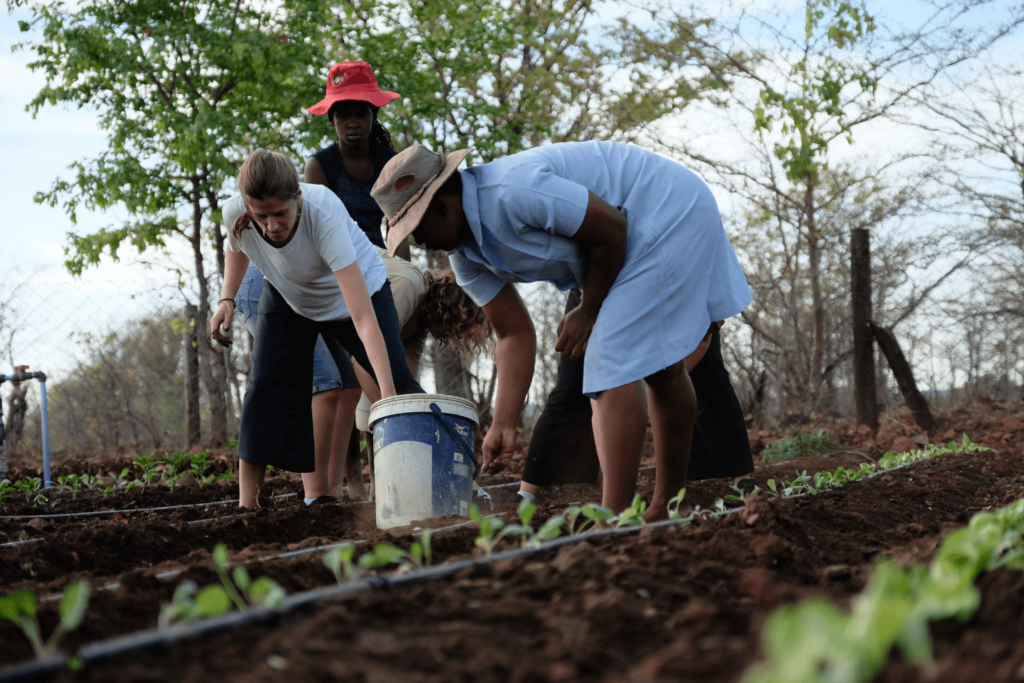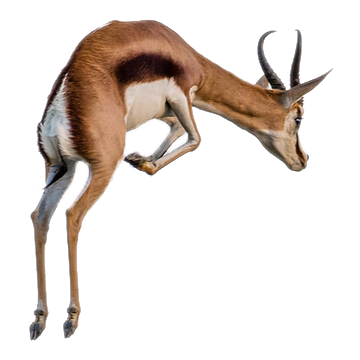Conservation & communities
ZIMBABWE
Zimbabwe
2 - 8 weeks
Every Monday
8 - 12 people
Age 17+
From $1,800
Zimbabwe
2 - 8 weeks
Every Monday
Monday
6 - 12 people
6 - 12
Age 17+
From $1,750
What's the project about?
Two of our favourite volunteer projects in Africa – combined! This experience gives volunteers the opportunity to contribute to wildlife conservation within a private conservancy and experience the challenges of community life in Victoria Falls. Conservation volunteers get the thrill of seeing Africa’s most iconic animals close at hand, while supporting a world-renowned conservation organisation. In Victoria Falls, the Greenline Africa Trust are dedicated to long term community action, supporting vulnerable people and their families.
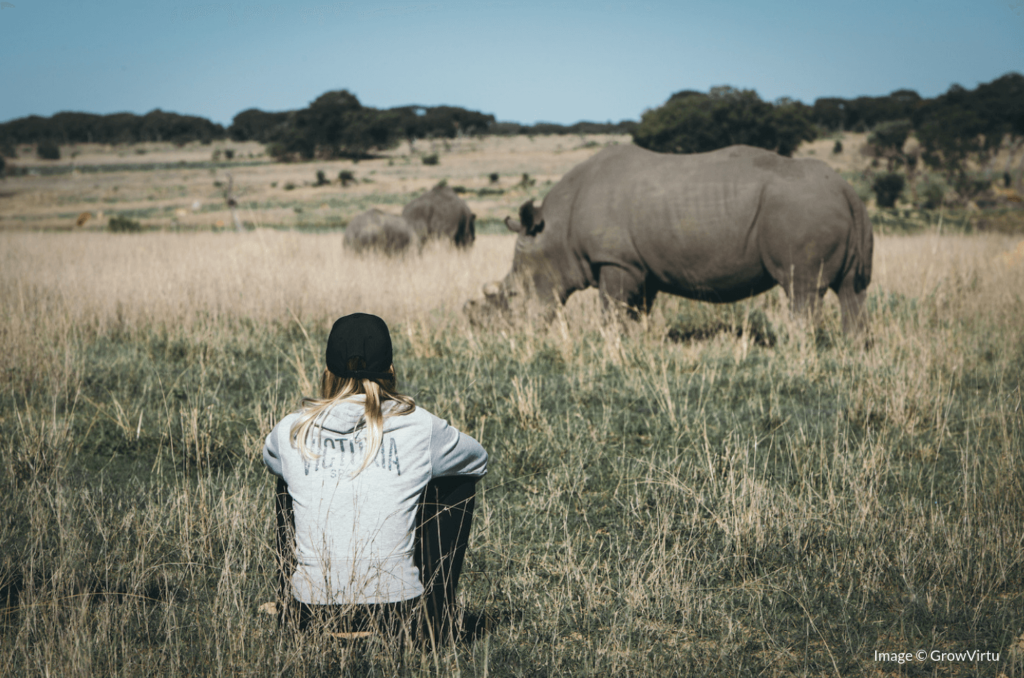
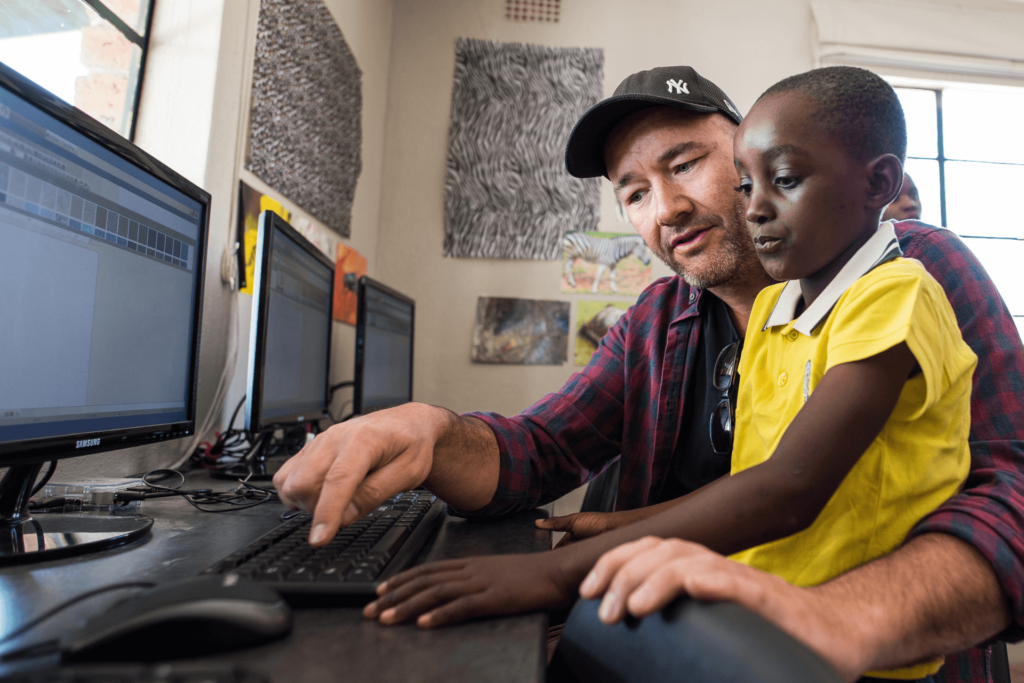
How will I be contributing?
This volunteer project combines rhino and elephant conservation work with community projects in rural areas near the world-famous Victoria Falls. Volunteers have a once-in-a-lifetime opportunity to experience and learn about wild animals in a safe and natural environment and undertake practical conservation activities. You will also contribute to community projects focusing on education, poverty alleviation and skills training. This could include school feeding programmes, agriculture projects, water aid and early childhood education.
What makes this project ethical?
The human-wildlife conflict is possibly the greatest issue currently faced by conservationists. Through these two volunteer projects, you will participate in the protection of threatened wildlife and also work towards an Africa where communities and animals peacefully co-exist. Poverty alleviation and education programmes are critical for long term conservation, ensuring that the responsibility for Africa’s wildlife is placed in the hands of its communities.
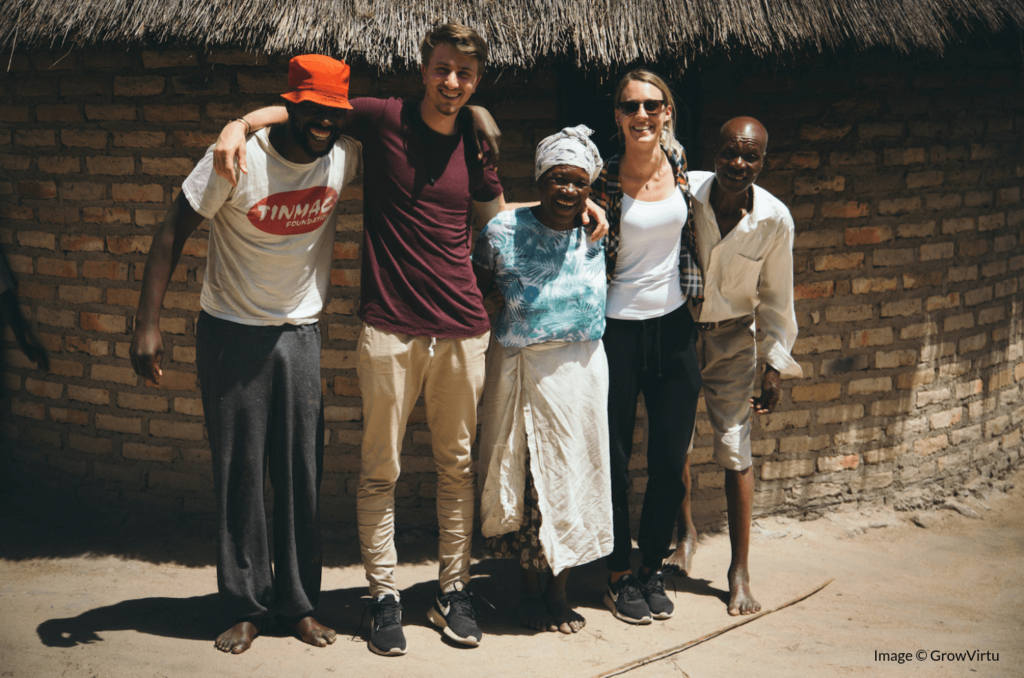
Project showreels
Project gallery
Project information
Our Rhino & Elephant Conservation Programme gives you the opportunity to live on a 10,000 acre private conservancy and learn about endangered species and their battle to survive.
Volunteering at Imire is a unique opportunity to immerse yourself in a new country and culture, and experience day-to-day life in Africa. In return you will contribute to an important conservation cause. The experience will be life-changing.
The conservancy has wonderful local guides, dedicated to the conservancy’s wildlife and experienced at teaching volunteers to understand the bush.
Volunteers will usually get involved in some or all of the following activities:
Wildlife conservation and animal interaction:
- Learn about rhino conservation from experienced local guides, and what the reserve is doing to support the species in Zimbabwe;
- Learn to track and locate white rhino using telemetry;
- Identify the different tracks and signs of animals, as you take guided nature walks through the bush;
- Collect observational data on rhino and elephant behaviour, health, movements, interactions and browsing activities.
Anti-poaching and security:
- Provide additional manpower for foot patrols and snare sweeps;
- Secure, repair and check boundary fences;
- Conduct weapons training and anti-poaching simulations;
- Communicate anti-poaching messages to school children.
Conservancy management:
Get a sneak peek into the behind-the-scenes operation of a large conservation area.
- Deliver feed and nutritional supplements to sable, zebra, buffalo and other plains game. Help feed the lion;
- Meet Murwi, star of the Anti-Poaching K9 Unit;
- Undertake game counts and herd studies on foot, by vehicle and on horseback
- Carry out indigenous tree planting, and invasive and alien species removal
- Maintain fences, roads, fireguards and equipment
Culture and community projects:
Community engagement is the essence of sustainable conservation, and Imire is a long-time champion of local employment, education and poverty alleviation projects in the local community. The project are dedicated to the surrounding villages and work hard to emphasise the importance and benefits of protecting wildlife and the environment. Volunteers will:
- Experience Shona culture first-hand. Go on home visits, learn to cook traditional meals and move your feet in traditional dances;
- Meet members of the local community and share ideas and experiences;
- Brave the ladder and climb to the top of Castle Kopje, as you learn about the conservancy’s rich history from local guides;
- Visit the local schools and experience how African schoolchildren learn;
- Get involved with organic gardening, tree planting and beekeeping.
For more details about our project at Imire, please see our Rhino & Elephant Conservation Programme page.
Our Communities & Culture Programme enables volunteers to experience the challenges of daily life in rural Zimbabwe. It is an incredible opportunity for cultural exchange, gaining an appreciation for what life in Africa entails.
Typically, your itinerary will depend on what the priority projects are at the time. This could depend on the time of year, the weather, what projects are already in progress, and, of course (this is Africa), any unexpected events that may occur.
You can be sure that your days will be filled with interesting work that is genuinely needed, and you will always be doing something purposeful.
The project like to try and dedicate each day to a specific activity, to ensure that it is carried through to completion or a natural end, without rushing. This also means you can see that your work has contributed to a tangible result.
Community volunteers are involved in a number of grass roots projects in the area, including:
- Community pre-school ECD projects and feeding programmes;
- Homestead food intervention programmes;
- Adult education, training and skills development;
- Community conservation and biodiversity projects;
- Agriculture and horticulture projects.
What this means for volunteers:
Support livelihood development projects:
At the volunteer centre and within the local community, you will assist with education and training, which could include joining in with:
- Sewing projects;
- Soap and oil production;
- Horticulture projects and indigenous tree planting;
- Computer skills training and adult literacy.
Gogo projects
‘Gogo’ is a Shona word meaning ‘grandmother’. In the rural areas there are a large number of gogo-headed households, where children have been left with their grandparents. Many gogo’s look after a number of their own grandchildren, plus other orphans and unrelated children.
- Deliver monthly food parcels and help with home repairs and homestead maintenance;
- Help with daily water collection;
- Visit homes, learn to cook traditional food and experience life in a rural community.
Agriculture projects
The project support four local farmers. Volunteers will:
- Work with livestock such as cattle, goats and poultry – help with feeding and care;
- Irrigate, plant and reap vegetables and help with deliveries;
- Undertake tree planting and invasive species removal.
Education Projects
Greenline support three local pre-schools (taking children from 3-5 years), and there is a high commitment from children and teachers to attend school. Volunteers may get involved with:
- Building and painting classroom blocks, toilets and playgrounds;
- Digging vegetable gardens and assisting with watering, planting and picking
- Reading and playing games and sports with the children
For more details, please see our Communities & Culture Programme page.
At your conservancy project, volunteers will either be accommodated in the main volunteer house (Numwa House), or in a brand new wilderness tented campsite in a wild section of the conservancy.
Numwa House:
Numwa House is a thatched farmhouse in the heart of the conservancy, situated in an idyllic spot on the banks of a large dam. Inside, the house has five bedrooms, with four twin / double rooms and a same-sex dormitory. There are two inside bathrooms with bath or shower, an inside toilet with basin, and three outside solar showers, with the best view in the house. Outside, there is a pool and verandah area. The house has electricity and hot and cold running water. Bear in mind that electricity can be intermittent and power outages are common, especially during the rainy season. There is a generator and solar lights.
Chiwawe wilderness camp:
This brand new tented camp is situated in a remote part of the conservancy and consists of 6 walk-in tents under thatch, with attached en-suite bathroom. Each with hot and cold running water, shower and flush toilet. Each tent has two twin beds, side tables and storage space. There is a central dining and living area with fully-equipped kitchen.
At both sites, three home-cooked meals are provided by the resident kitchen staff, and tea, coffee and drinking water are freely available. Vegetarians, vegans and other dietary requirements can be catered for. Housekeeping staff will do your laundry and keep the house clean and tidy. The camp has solar power for charging equipment and for lights.
It’s time to get away from it all – there is no wifi at the project, but 3G signal is good and cell phone roaming is available. The signal is strong enough to check emails and use social media.
In Victoria Falls, the volunteer programme is based at the Greenline Africa Training Centre, and your home is in the heart of the rural community. The house is a comfortable, spacious home, with electricity, hot and cold running water, a large garden and outside verandah.
The house has three bedrooms, each with en-suite. Three home-cooked meals are provided every day, but volunteers should come prepared to assist with the preparation and cooking of meals. Tea, coffee, juice and drinking water are freely available. Vegetarians, vegans and other dietary requirements can be catered for. There is a housekeeper who will make beds, clean and do laundry. Bear in mind that electricity can be intermittent and power outages are common, especially during the rainy season (November – March). There is a generator which will be run intermittently during power cuts.
There is no wifi at the project, but 3G signal is good and cell phone roaming is available. The signal is strong enough to check emails and use social media. You will spend one day a week in Victoria Falls town, where you can visit an internet cafe.
When can I volunteer?
Volunteers can join the Rhino & Elephant Conservation Programme every Monday, and the minimum stay is one week. Arrivals to the Communities & Culture Programme can be flexible, and shorter stays are possible.
Project pricing:
1 week Rhino Conservation / 1 week Community Outreach: $1,800
1 week Rhino Conservation / 2 weeks Community Outreach: $2,600
2 weeks Rhino Conservation / 1 week Community Outreach: $2,700
2 weeks Rhino Conservation / 2 weeks Community Outreach: $3,500
Daily rate for part weeks – Community Outreach: $125 per day (volunteers joining the Rhino Conservation programme must join for full weeks).
Each additional week over 2 weeks – Community Outreach: $850 per week / Rhino & Elephant Conservation: $950 per week.
All prices are in USD.
What’s included in the cost?
- Project contribution: this goes directly to our project partners, and provides funding to ensure the programme can continue to meet its goals. For this combination project it will cover things like staff costs, equipment purchases, maintenance of buildings, equipment and vehicles, veterinary fees, funding for community projects etc
- Accommodation and three meals per day
- Return airport transfers
- Laundry and housekeeping
- Comprehensive orientation and supervision
- Practical instruction by experienced guides
- Equipment and materials required to do your work.
What’s not included?
- Flights or travel to Harare and Victoria Falls
- Visa fees (variable depending on nationality)
- Travel insurance (compulsory)
- Personal expenses such as souvenirs, drinks from the bar, snacks
- Pre and / or post programme accommodation (if required)
- Additional excursions
- Local SIM card and data / airtime bundles (optional)
- Administration fee ($40)
The primary goal of Imire is to support Zimbabwe’s rhino heritage, through the successful breeding and re-introduction of the endangered black rhino.
Alongside this goal, is to ensure the long term protection of Zimbabwe’s wildlife through a unified and holistic approach to wildlife conservation. Their aim is to create a blueprint for small conservancies, enabling them to successfully exist alongside local communities, ensuring that environmental stakeholders, including landowners, conservationists, communities and local farmers, all benefit from the presence of wildlife.
The volunteer programme forms a critical part of Imire’s mission to connect responsible travellers, wildlife programmes and community projects, to create a sustainable, long term, collaborative conservation strategy.
During your time at Imire, you will live in the heart of the conservancy, interact with rhinos and elephants, and gain an appreciation of the commitment required to protect wildlife in Africa.
The vision of the Greenline Africa Trust is to create a better life for marginalised women, children and youth. The goal of the volunteer programme is to provide support for ongoing projects within the community, and to enable the Trust to sustain the projects long term, or deliver them to full completion.
Volunteers also play a vital role in motivating communities to develop a spirit of self-improvement, creating a unified sense of purpose and a pride in their achievements. Cross-cultural exchange, international awareness and empathy are all critical to positivity within a community.
You can be sure on this combination project that your days will be filled with interesting work that is genuinely needed, and you will always be doing something purposeful.
Imire: Rhino & Wildlife Conservation is a 10,000 hectare privately owned rhino conservancy in Zimbabwe, approximately 130km south-east of Harare. The conservancy is dedicated to the welfare of all wildlife, with a particular focus on the protection and breeding of the critically endangered black rhino.
Imire is world-famous for its seven black and three white rhino. The conservancy is also home to three elephants, a herd of Cape buffalo and an elderly male lion, living out his retirement in comfort! There is a variety of plains game including eland, kudu, nyala, waterbuck, blesbok, zebra, giraffe, wildebeest and crocodile, plus herds of the rare sable antelope – Zimbabwe’s National Animal. Imire is also home to a wide variety of birds, reptiles and snakes.
For full details of our project at Imire, please see our Rhino & Elephant Conservation Programme page.
The Greenline Africa Trust was founded in 2013 by local Zimbabwean environmentalists, Charlene Hewat, Namo Chuma and Veronica Chapman. The Trust is firmly behind the philosophy of integration between wildlife, communities and sustainable poverty alleviation solutions.
Greenline Africa is focused on work within the rural areas around the world-famous Victoria Falls and Hwange Rural Districts. These areas are classed as Region 5 – characterised by low rainfall, high temperatures and extremely poor soil. The poverty levels of communities here is high; there are many orphaned children, and many gogo and child-headed households living with HIV / AIDS. Most children have protein and vitamin deficiencies and access to water is a daily challenge.
The Trust has built a Community Training Centre in the Dibutibu rural community, around 25km South East of Victoria Falls in western Zimbabwe. The centre is the focus of all community activity, and houses a dedicated industrial sewing facility, used to make uniforms for local lodges; an indigenous tree nursery and a prolific community vegetable garden, maintained by two permanent employees.
For full details about Greenline Africa, please see our Communities & Culture Programme page.
Who should volunteer on this project?
This is a wonderful experience for volunteers of all ages, where you will experience Africa in a safe environment, work hard and make a positive contribution. No experience is required, just a positive, can-do and flexible attitude. You should be able to communicate reasonably well in spoken English.
How old do I need to be?
The minimum volunteering age for the project is 17 years. There is no upper age limit, but for volunteers aged over 65, we do require your medical form to be signed by a doctor. These projects are both suitable for family volunteers – please see our dedicated Family Volunteering page.
How many people will there be?
At the Rhino & Elephant Programme, there will be groups of up to 12 volunteers. In Victoria Falls, ideal group sizes 6 people. If you are a larger group, please do let us know.
When can I join
Volunteers should aim to arrive and depart on a Monday. Please enquire if you need to arrive or leave on an alternate day.
What food will I eat
Breakfasts generally include toast, cereals, fruit, yoghurt and eggs; lunches will include salads, pasta, cold meats and fresh bread, and in winter, homemade soups and rolls. Dinners will include pasta, curries, stews, with fresh vegetables and starch. Vegetarians, vegans and celiacs can be catered for – please let us know when booking. Specialist food items such as gluten-free products and dried fruits and nuts, are extremely expensive and hard to come by in Zimbabwe, so we may ask you to bring some supplies from home if you do have specific dietary requirements.
When is the best time to come?
April – October is the dry season, with the rains usually coming again in mid to late November. June – September is winter, characterised by warm, sunny days, clear blue skies and cool evenings and nights. October is the hottest month, with temperatures in the area reaching 30-32 degrees. November – March is summer, where rain showers are intermingled with hot, sunny days and temperatures of over 30 degrees.
Do I get some time off
Volunteers usually work from Monday to Saturday lunchtime. Saturday afternoon and Sunday is leisure time, where you can go fishing or hiking, go into town, or relax at the volunteer house.
How long can I volunteer for?
The minimum recommended project length is two weeks, although shorter stays can usually be arranged.
How much spending money should I bring
We recommend bringing around $100 per week in USD to cover personal expenses such as drinks, souvenirs, t-shirt, snacks, tips and internet usage.
Do I need a visa?
Most nationalities, including British, American, Canadian, Australian and most EU citizens, can get a 30-day tourist visa upon arrival into Harare. Fees are dependent on nationality and range from $30 – $75 (paid in USD cash). Extensions are available from the Department of Immigration, up to a maximum stay of 6 months.
It is your responsibility to check your visa eligibility prior to arrival.
What animals will I encounter?
Imire is world-world-famous for its ten black and white rhino. In addition, the conservancy is home to three elephants, a herd of Cape buffalo and an elderly male lion, living out his retirement in comfort! There is a variety of plains game including eland, kudu, nyala, waterbuck, blesbok, zebra, giraffe, wildebeest and crocodile, plus herds of the rare sable antelope – Zimbabwe’s national animal.
What should I wear
Please bring culturally appropriate clothing. While we do not expect volunteers to adhere to strict dress codes, please be mindful of what is and is not culturally sensitive. Please ensure you bring a wide brimmed hat or cap, and sun cream of SPF 30+.
What vaccinations do I need?
Please consult your GP or travel clinic for detailed medical advice. All volunteers should make sure their Tetanus, Polio and Hepatitis A and B are up to date. A rabies vaccination is recommended but not compulsory.
Malaria – Victoria Falls is a high-risk malaria area and prophylactics are recommended. Imire is a low-risk area. Please consult your GP for guidance and visit this UK government website for more details.
Volunteer reviews



Other projects you might be interested in
From $950
1 - 8 weeks
Participate in delivering solutions to the human-elephant conflict in Namibia. Monitor populations of the rare desert elephant and support rural communities.
From £950
2 weeks
Combine rhino conservation and primate rehabilitation in Zimbabwe. Experience life on a private conservancy and work in a sanctuary dedicated to animal care.
From $875
1 - 12 weeks
Learn about other cultures as you engage with schoolchildren, teachers and farmers. Get a fresh perspective and appreciate different ways of life.

